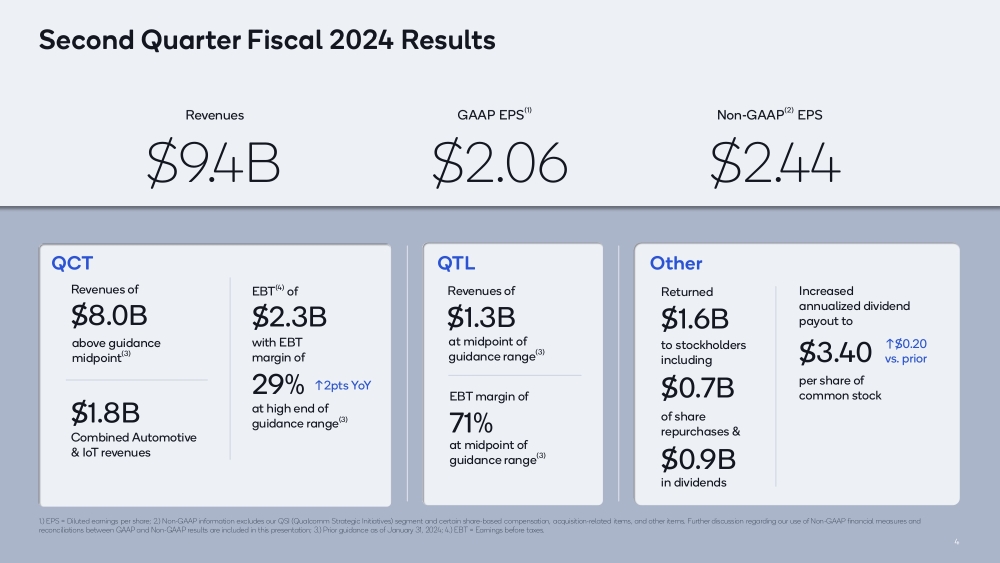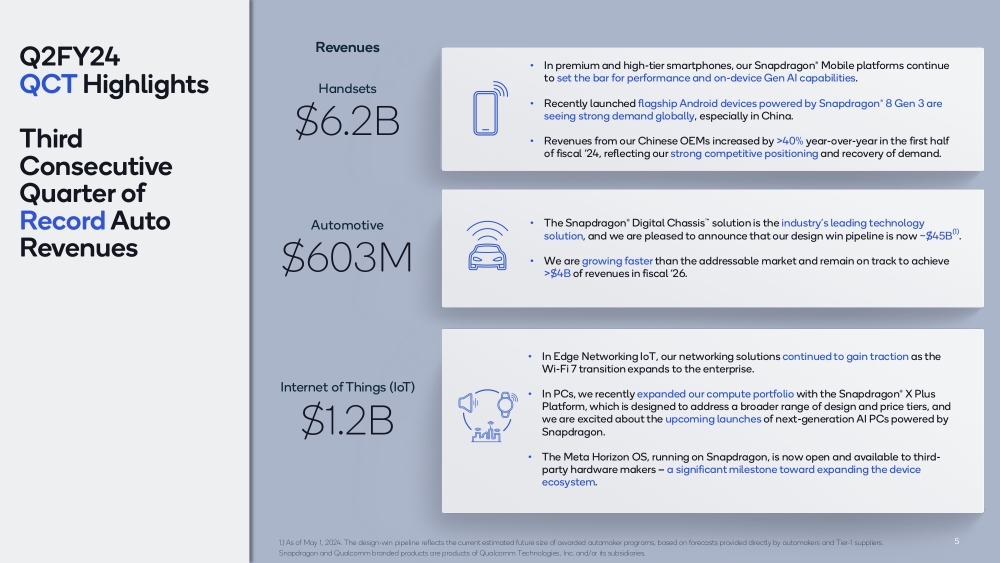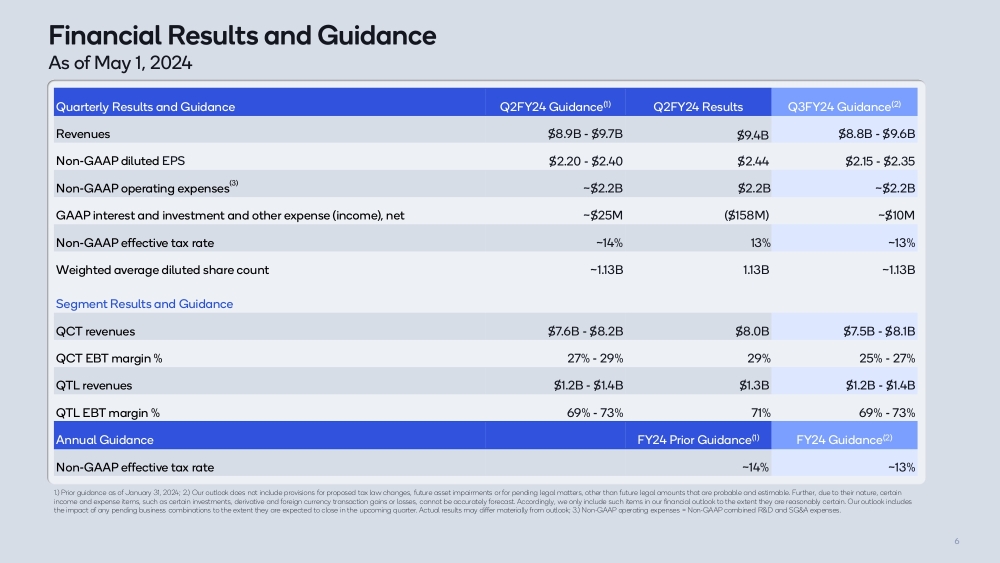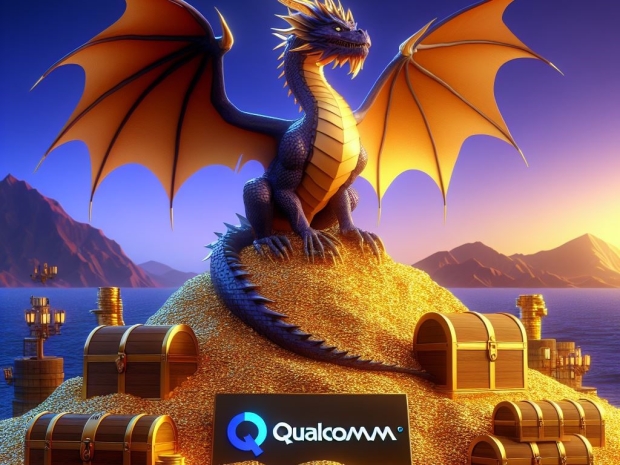Qualcomm made $2.44 (€2.31) per share earnings against the expected $2.32 (€2.20). Revenue was $9.39 billion (€8.90 billion) adjusted, compared to the anticipated $9.34 billion (€8.85 billion). Net income for the quarter stood at $2.33 billion ( €2.21 billion), or $2.06 (€1.95) per share, an increase from $1.7 billion (€1.61 billion), or $1.52 (€1.44) per share, in the same period last year. The company anticipates sales between $8.8 billion (€8.34 billion) and $9.6 billion (€9.10 billion) for the current quarter, surpassing the Wall Street forecast of $9.05 billion (€8.58 billion).

Analysts had predicted earnings guidance of $2.17 (€2.06) per share, whereas Qualcomm's projection ranges from $2.15 (€2.04) to $2.35 (€2.23) per share.
During the earnings call, Qualcomm projected a mid-single digit per cent decline in overall handset revenues for the current quarter due to the seasonal absence of summer smartphone launches.
Qualcomm's flagship business, the handset division, reported a per cent year-over-year increase in sales to $6.18 billion (€5.86 billion), hinting at a potential rebound in the smartphone market. The company highlighted a surge in demand for high-end smartphones, particularly in China, where revenue from Chinese phone manufacturers soared by 40 per cent compared to the previous year.

Qualcomm CEO Cristiano Amon, during the earnings call, stated, "We have not observed any weakening in China's high-end Android market. The robust performance is largely attributed to premium devices from brands like Oppo, OnePlus, and Vivo."
The firm refers to its top-tier chip-using phones as "AI-powered smartphones," boasting features such as automated email completion, real-time translation, and virtual assistants powered by the chip's dedicated "NPU" AI section. An example is the recently launched Samsung Galaxy S24 Ultra.
Amon added, "We are witnessing the initial instances of on-device AI and Gen AI in premium devices, garnering positive consumer response. We focus on maximising performance per watt as the key metric for artificial intelligence."
Qualcomm's automotive segment, which supplies chips to car manufacturers, saw growth, with a 35 per cent year-over-year rise to $603 million (€572 million). The company anticipates continued double-digit per cent growth in this sector for the current quarter. However, revenue in the "Internet of Things" division, encompassing lower-cost and virtual reality chips, fell by 11 per cent year-over-year to $1.24 billion (€1.18 billion).
These three segments are collectively reported under QCT, Qualcomm's chip business, which experienced a per cent increase in year-over-year sales to $8.03 billion (€7.61 billion)
The company's licensing arm, QTL, which earns fees from entities integrating 5G or cellular technology into their products, saw a 2 per cent rise to $1.32 billion (€1.25 billion) from the previous year.
Qualcomm said it distributed $895 million (approximately €848 million) in dividends and repurchased $731 million (€693 million) in shares during the quarter. Additionally, the quarterly dividend increased to 85 cents (€0.81) from 80 cents (€0.76).





